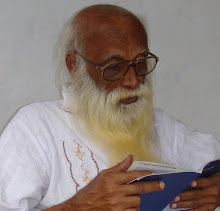Kesini
Manorama
Menaka
Misrakesi
Rakshita
Rambha
Tilottama
Urvasi
Vidyutparna
Except for Urvasi and Menaka, the rest were the daughters of Kasyapa by one of his wives, viz., Arishta. They were thus Indra’s half-sisters.They were all very beautiful, and accomplished themselves as great danseuses. Urvasi was born under peculiar circumstances: Two ascetics, Nara and Narayana, were doing great penance in the Himalaya at Badarinath. Indra suspected that they wanted to usurp his place as Lord. He presented himself before them and offered whatever boon they wanted. They were so deep in meditation that they did not notice him. Indra then sent all his Apsara courtesans to sing and dance before them, so that they would desire one or more of them. Disturbed at length, sage Narayana slapped his thigh in annoyance; at once, there arose from it a maiden more beautiful and luscious than any of Indra’s gang. She was called Urvasi, because she was born out of a thigh (Uuru, in Sanskrit). Indra and his gang were discomfited; Narayana presented the newly created beauty to Indra, and sent them all off, back to Heaven. Only she has been specifically mentioned by name in Rg Veda (X, 95). Even though she was less accomplished as a singer and a danseuse than some of the others, she was the most charming of them all.
The myths are not specific about Menaka’s origins. According to some, she was a gift of the sea, when it was churned for nectar. But according to others, Menaka was already in Indra’s court, when Durvasas made his famous visit. She presented the sage with the fragrant garland of flowers, which in turn he gave to Indra. Indra had negligently placed it on the head of his elephant, which tossed it down and trampled it, thus enraging the sage to curse them all. The churning of the ocean was the means the gods took in order to get the means for restoring them to everlasting youth.
A type of god known as Gandharva, minstrels and musicians, were the usual companions of these divine courtesans. Sometimes, their union begat progeny. Some Apsara damsels fortuitously had fertile liaisons with humans, the progeny being left behind on Earth, where they became distinguished in many ways. Indra used them mainly for seducing ascetics whom he suspected to be capable of being his rivals. He would send them to sing and dance before them, so that they would lose their self-control and forfeit the virtues of their penances.
Apsara found favour in the Cambodia and other eastern countries. In the great temple at Angkor Vat, there are many depictions of them. The classic dance of Cambodia and Bali feature Apsara dances as one of the most popular items.

